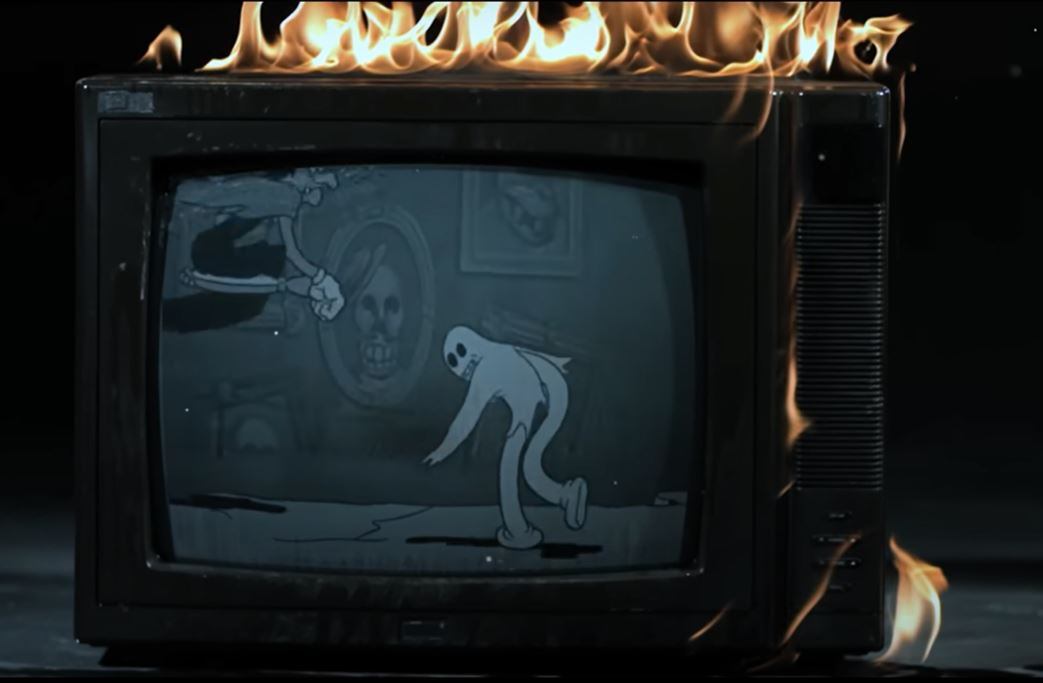The Army released a new recruiting video for its psychological operations career field this month that can be best described as a psychological thriller movie trailer made by a conspiracy theorist with a Cold War fascination.
The video kicks off with a quote from Sun Tzu’s Art of War and cyclically transitions from footage of modern-day cities, a forest and a black-and-white cartoon, to 20th Century conflicts and speeches all tied together under the concept of being “a ghost.”
The recruiting video, which was published by 4th Psychological Operations Group and caught the attention of warfare futurists, gives off a slightly creepy, surreal vibe. Its message: join Army PSYOPS to find, manipulate and become the ghost puppeteer pulling the world’s strings, especially those of hot-button national security threats like the Chinese and Russian governments.
The field of PSYOPS may be more relevant than ever as the world reaches the third month of the Russian invasion of Ukraine and the U.S. comes out of years of questioning whether Russia was involved in its democratic elections in 2016 and 2020.
Given the number of references in the video to Russia and China, it’s also hard not to view this PSYOPS recruiting video itself as a bit of a PSYOP aimed at an overseas audience.
Information warfare has been thrust to the forefront of strategic analyses and conversation surrounding the war in Ukraine, with many experts hailing the efforts of the Ukrainian government’s use of propaganda to garner international support and boost Ukrainian nationalism.
Consider the Ghost of Kyiv, a supposed Ukrainian fighter pilot notorious for shooting down Russian planes. The Ghost quickly became an internet sensation, bolstered by official Ukrainian social media accounts, and a symbol of Ukrainian strength and resiliency when facing a much stronger Russian military foe. That’s all well and good, but it should be noted that the pilot wasn’t real.
Ukrainian Air Force officials admitted May 1, two months into the invasion, that the Ghost of Kyiv was just a myth. But that icon, similar to the story pushed and initially verified by the Ukrainian government about the defenders of Snake Island all dying in defiance of a Russian warship’s order to surrender, has arguably been one of the greatest boons to the Ukrainians’ fight against Russia.
Both “urban legends” were pushed as part of Ukraine’s information warfare campaign, a campaign so successful that researcher Sinan Aral wrote in an article for the Washington Post that, “Ukraine and its partisans are running circles around Putin and his propagandists in the battle for hearts and minds, both in Ukraine and abroad.”
Old tools of information warfare, like leaflets and loudspeakers, already looked archaic compared to media savvy ISIS propagandists or Taliban Twitter accounts. Bots, spammers, memes and more could be the future of this controversial mission.
For those interested in Army PSYOPS, it’s important to note that the field is incredibly competitive. According to the Army, candidates have to score higher than 85 on the Defense Language Aptitude Battery test. Soldiers also must pass a 10-day selection course before they can begin the 43-week official qualification course.
But those who successfully make it into the specialty do qualify for language pay and Airborne pay, a more than $50,000 allowance for further education, and initial and reenlistment bonus packages of up to $21,000 for enlisted personnel, according to the Army.
Rachel is a Marine Corps veteran and a master's candidate at New York University's Business & Economic Reporting program.









